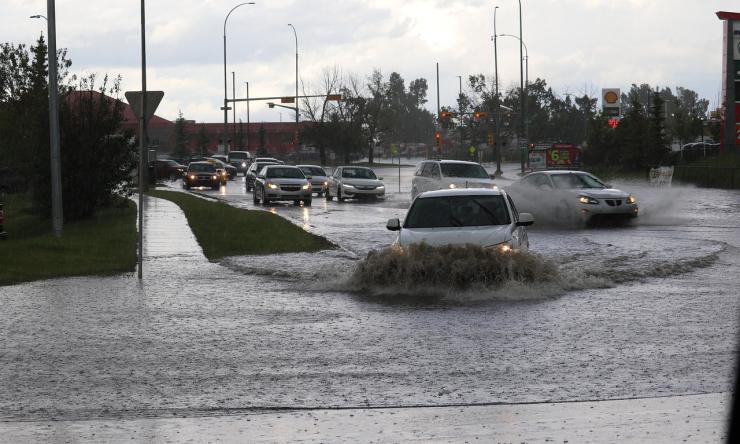Safety tips for severe flooding
Heavy rainfall in Houston and surrounding communities from Hurricane Beryl has left many people dealing with the aftermath of severe flooding. Dr. Abiodun Oluyomi, associate professor of medicine – epidemiology and population sciences at Baylor College of Medicine, shares tips on how to stay safe in dangerous floodwaters as we continue through hurricane season.
“When you know flooding will be a major event, it’s best to evacuate. If evacuating isn’t an option, move to higher ground; if you are in a two-story home, seek shelter on the second floor,” Oluyomi said.
Water in severe flooding events can be toxic, and it is best to avoid contacting it if possible, he added.
“The water can contain debris or be polluted with bacteria or other chemicals from the region where you are,” he said. “If you come into contact with the contaminated water and are worried it might have entered your body through an open wound, consult a physician or other appropriate health professionals.”
If floodwater has entered your home, ensure it is safe before re-entering. In addition to a damaged interior, flooded homes often have damaged electrical and gas lines.
“Carpet and furniture will need to be removed to prevent mold. Have a professional check your gas and electrical line to ensure they work properly,” he said.
Other tips for returning to your home after a flood include:
- Avoid harsh cleaners. Dry and ventilate the area.
- Re-build smart, healthy and resilient: Use flood and mold-resistant materials (ceramic and concrete tile, paperless drywall with a gypsum core is moisture resistant).
- Seek help when needed: a flooding event commonly leads to depression, sleeplessness and stress-related health problems.
For more information on severe weather safety, click here.










